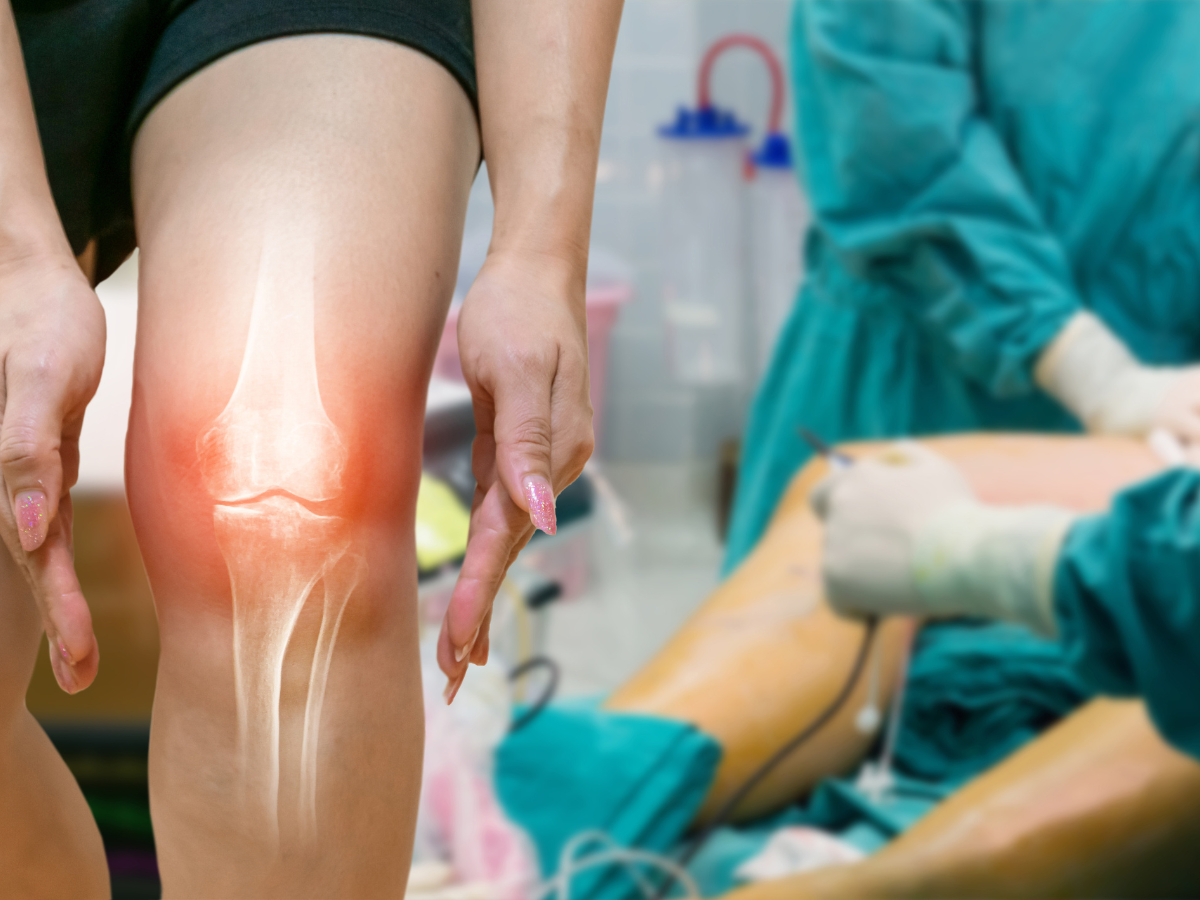
5 Key Symptoms That Signal the Need for Knee Replacement
Knee pain is something many people live with, often dismissing it as a normal part of ageing or the result of a busy lifestyle. Almost 40% of the Indian population suffers from mild to severe joint pain, including that of the knee. When the pain is constant and unrelenting, when swelling does not fade, or when simple tasks like walking or climbing stairs start to feel impossible, it may be more than just temporary discomfort. Recognising the right time for knee replacement surgery is crucial, because early intervention can help restore mobility, reduce suffering, and bring back the freedom to move without hesitation. Here are 5 signs that signal the need for a knee replacement that you should know of, as timely treatment can help improve your long term outcomes.
Sign 1- Persistent and Severe Knee Pain That Medications Cannot Control:
One of the clearest and most pressing red flags that the time for knee replacement surgery has arrived is when pain refuses to leave, lingering even in moments of rest, creeping into sleep, and gnawing relentlessly at one’s peace. In many Indian households, such discomfort is too often brushed aside with the resigned acceptance that it must be a natural part of ageing. The reality is that when pain persists despite tablets, ointments, or injections- it usually points to advanced osteoarthritis where the cartilage has worn away entirely and bones are grinding harshly against one another. At this stage, for countless patients who turn towards knee surgery in Hyderabad- the only meaningful relief comes through surgical intervention, in the form of a total knee replacement or a partial knee replacement.
Sign 2- Stiffness And Limited Range Of Motion Affecting Daily Activities:
At first, stiffness might only trouble you while rising from a chair or bending briefly, but it quickly begins to infiltrate those daily rituals – where each action is transformed from effortless habit into a near impossible activity and this rigidity is rarely fleeting. The body announces that the cartilage has worn thin and that the joint is slipping into deformity, which explains why specialists often recommend total knee replacement surgery at this point, for it alone can restore fluid motion where none exists.
Sign 3- Chronic Swelling And Inflammation That Does Not Subside:
Swelling, though often dismissed as minor, functions as the body’s built-in alarm system. In a healthy knee, such puffiness fades with rest or compresses, but when swelling clings on persistently, accompanied by warmth and tenderness that no anti-inflammatory pill or home remedy can soothe, it reveals something more troubling beneath the surface – usually pointing to progressive degeneration of the joint or inflammatory arthritis that will only worsen if ignored. In India, where patients often bear discomfort silently, relying on turmeric milk, balms, or homemade poultices, many do not realise that chronic swelling is less a passing nuisance and more a signpost pointing towards the need for surgical correction.
Sign 4- Noticeable Deformity Or Bowing Of The Knee Joint:
The knee joint tends to stay straight for most individuals, but with ageing and associated wear and tear, it may begin to bend or form a bow-legged structure. This can cause you to alter posture, disrupt balance, and invite stares that carry their own quiet weight. These deformities, often caused by uneven wear in the joint compartments, do not simply affect appearance but load certain areas excessively, accelerating the erosion of cartilage, leaving only surgical correction through a full knee replacement or complete knee replacement as the answer.
Sign 5- Difficulty Walking, Climbing Stairs, Or Standing For Long Periods:
There comes a moment in many lives when climbing stairs, standing or sitting for long periods of time or even walking itself becomes difficult. Making ergonomic changes can help in and around the house, but if you don’t prioritise prompt treatment, then you will notice a major reduction in daily quality of life.
The journey from brushing off knee discomfort as an inconvenience to acknowledging it as a herald of something far more serious is often slow and shaped by habits of endurance and the belief that pain is part of ageing. Today, SBJI stands as a beacon of hope with its world-class facilities and expertise in robotic knee replacement surgery, and choosing the best knee replacement surgery in Hyderabad is not merely about repairing a joint but about reclaiming independence, dignity, and the simple joy of walking without hesitation.
Frequently Asked Questions
The first week typically involves hospital care, pain management, and gentle physiotherapy. Patients usually begin standing and taking assisted steps within days, under the guidance of a specialist.
Walking usually begins with support in the hospital and progresses steadily. Many patients walk independently within 4-6 weeks, though full recovery may take three months.
Yes, options include partial knee replacement, total knee replacement, and increasingly popular robotic knee replacement surgery for enhanced precision and customised alignment.
The knee replacement surgery cost varies widely, depending on hospital facilities, surgeon expertise, and type of implant used, typically ranging from moderate to premium packages.
Post-surgery, maintaining a healthy weight, regular physiotherapy, and avoiding high-impact activities are key to prolonging implant life and ensuring pain-free mobility.

